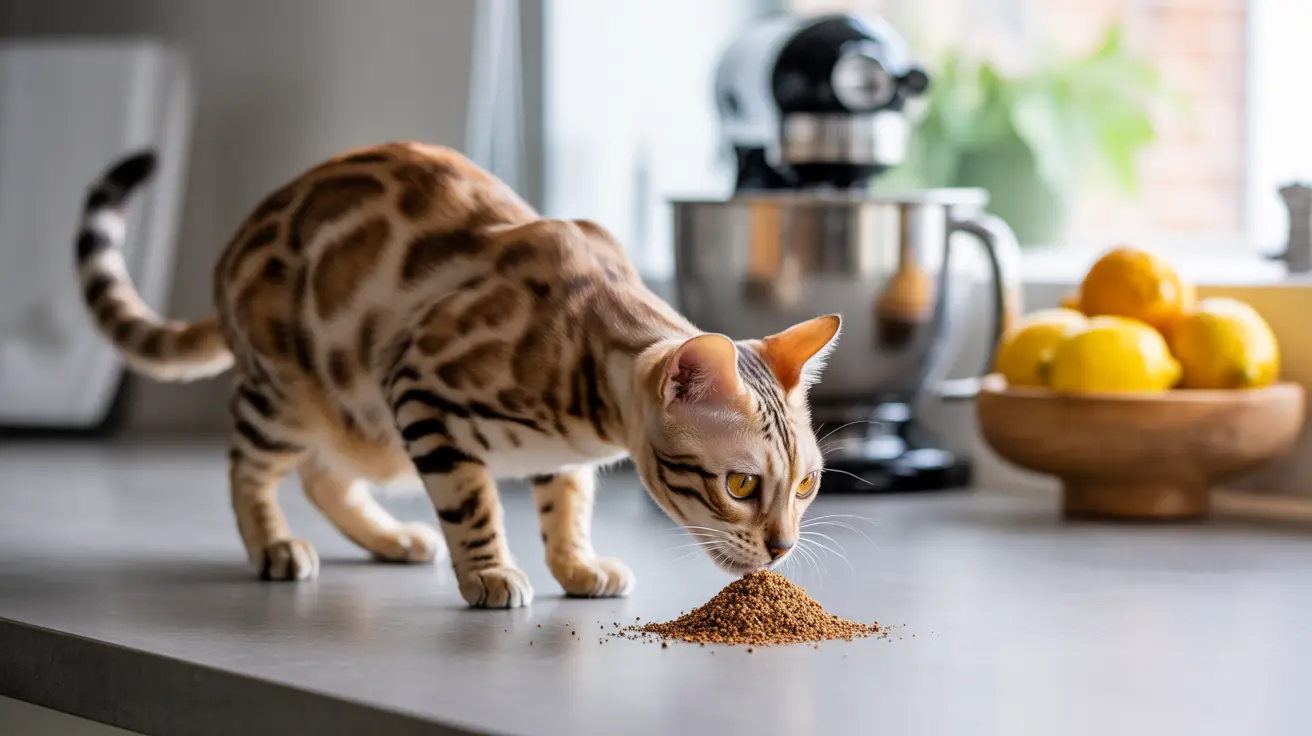Understanding Black Pepper and Cats
Many cat owners wonder about the safety of common household ingredients around their feline friends. Black pepper, a staple in most kitchens, raises particular concerns when it comes to cats' health and well-being.
While black pepper isn't technically toxic to cats, it's far from harmless. This common spice can cause various adverse reactions in felines, making it important for pet owners to understand the risks and take appropriate precautions.
The Effects of Black Pepper on Cats
Black pepper contains piperine, the compound responsible for its characteristic spiciness. This substance can be particularly problematic for cats because:
- It irritates their sensitive digestive system
- Can cause respiratory distress if inhaled
- May trigger inflammation in their mouth and throat
- Could lead to gastrointestinal upset
Cats, being obligate carnivores, lack the necessary enzymes to properly process many plant-based substances, including spices like black pepper. Their digestive systems are designed primarily for meat, making them particularly vulnerable to irritation from seasonings.
Common Symptoms of Black Pepper Exposure
If your cat encounters black pepper, they might experience several uncomfortable symptoms:
- Sneezing and coughing
- Watery eyes
- Drooling
- Vomiting
- Diarrhea
- Gastrointestinal discomfort
- Pawing at the mouth or face
- Loss of appetite
Prevention and Safety Measures
To protect your cat from black pepper exposure, consider these important safety measures:
- Store black pepper in sealed containers out of your cat's reach
- Clean up any spilled pepper immediately
- Avoid feeding your cat human food seasoned with black pepper
- Keep cats away from food preparation areas when using pepper
- Consider using pet-safe alternatives for natural deterrents
What to Do If Your Cat Consumes Black Pepper
If your cat has ingested black pepper, stay calm and take these steps:
- Remove any remaining pepper from their reach
- Offer fresh water to help flush their system
- Monitor their behavior closely
- Contact your veterinarian if symptoms become severe or persist
Frequently Asked Questions
Is black pepper toxic or harmful to cats if they eat it?
While black pepper isn't technically toxic to cats, it can cause significant discomfort and adverse reactions. Small amounts typically won't cause lasting harm, but it should be avoided in their diet.
What symptoms should I watch for if my cat ingests black pepper?
Watch for sneezing, coughing, drooling, vomiting, diarrhea, and signs of discomfort like pawing at the mouth or face. If symptoms are severe or persist, contact your veterinarian.
Can black pepper be used safely to keep cats away from gardens or certain areas?
While black pepper might deter cats, it's not recommended as a deterrent because it can cause respiratory irritation and discomfort. There are many safer, more humane alternatives available.
How does black pepper affect a cat's digestive and respiratory system?
Black pepper can irritate a cat's digestive tract, leading to stomach upset and diarrhea. If inhaled, it can cause respiratory irritation, sneezing, and coughing. Their sensitive systems are not designed to handle such strong spices.
What are safer alternatives to black pepper for deterring cats from specific spaces?
Safe alternatives include commercial pet deterrent sprays, citrus peels, motion-activated sprinklers, physical barriers, or electronic deterrent devices designed specifically for pets.
Conclusion
While black pepper isn't lethal to cats, it's best to keep this common spice away from your feline companions. Understanding the risks and taking proper precautions can help ensure your cat's safety and comfort. If you're ever concerned about your cat's exposure to black pepper or any other substance, don't hesitate to consult with your veterinarian.






